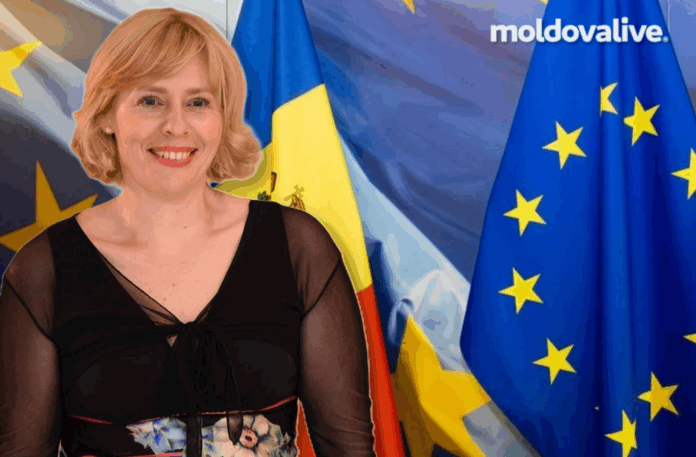Joining the European Union is difficult, but every effort is worth it. The EU brings peace, student opportunities, higher salaries, happier people, and long-term security. Croatian Ambassador to Moldova, Marija Kapitanovic, based in Bucharest and currently visiting Moldova, shared this view in an exclusive interview with RLIVE TV.
Kapitanovic explained that since Croatia joined the EU on July 1, 2013, people have gradually experienced a better quality of life.
“When we talk about benefits, there are many,” she said. “Not all of them are immediately visible or tangible. That’s one of the biggest challenges of EU integration — it takes time. For Croatia, joining the European family and gaining visibility were essential. EU membership opened economic opportunities that improved our standard of living, boosted economic growth, raised salaries, lowered unemployment, and ensured better interest rates for loans. Household incomes also grew.”
She emphasized agriculture as another key area of improvement. Croatian farmers and producers had to meet strict food safety and health standards, which weren’t easy at first. However, she stressed that the effort paid off, and today those farmers are competitive on the EU market.
FOR THE MOST IMPORTANT NEWS, FOLLOW US ON TWITTER!
“Students were the first to feel the benefits,” the ambassador said. “They gained access to study opportunities abroad, including full programs or master’s degrees. Mobility also improved — crossing borders became easier. Even before Schengen, joining the EU made travel and working abroad much simpler. It became easier and faster to get work permits.”
Kapitanovic acknowledged that poverty exists in the EU, but it is rare. “Croatians don’t live in fear of tomorrow. They think about retirement plans — whether to buy a home by the sea or in the mountains. EU membership gives them a sense of security.”
“In EU countries, people can pay their bills, take summer and winter vacations, and enjoy hobbies — that’s what the EU is about. People live decent lives. They don’t worry whether their salary will last until the end of the month. After retiring, many look to buy homes in Mediterranean countries. Everyone deserves that kind of life.”
She highlighted strong education systems across the EU, which help young people attend good universities and find jobs in reputable companies.
Kapitanovic is closely watching Moldova’s European path and offered practical advice. “It’s worth the effort,” she said. “Living standards improve, and access to EU funds grows. For example, many of my friends used EU money to build small guesthouses with pools for tourists.”
However, she stressed the need for political unity in Moldova. “When Croatia began the accession process, all political parties formed a pact to support EU integration. This national consensus was key.”
She also emphasized effective coordination among institutions and a strong focus on reforms, like the justice reform.
“What helped us,” she added, “was a scholarship program for young civil servants. The government funded their master’s degrees in EU countries, especially in European integration. When they returned, they had to work in public administration for 3–5 years. It ensured we had a skilled and balanced team of experienced and young officials to implement reforms effectively.”


